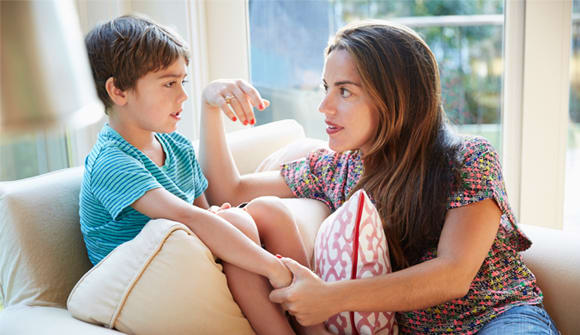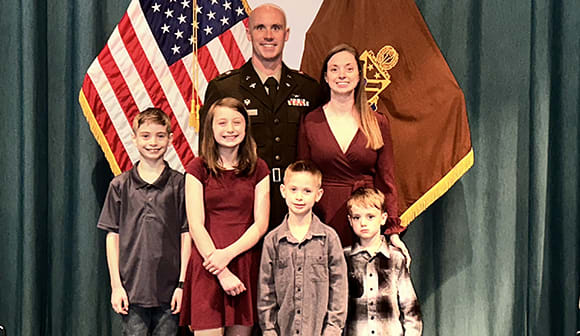Diverse discussions
How to talk to your kids about racism.
Article Author: Katie McPherson
Article Date:

Every parent remembers their child’s first hard question: “Where does my goldfish go after he dies?” “Why do old people get sick?” “Why are there bullies in my class?”
Today, as headlines about police brutality and protests swirl, those questions may turn to racism. And child psychology experts believe it’s best to address them honestly, and even proactively.
Vivian Pinner, MEd, a licensed mental health counselor at Baptist Behavioral Health, was a school counselor during both 9/11 and Columbine, so she has experience talking to children about major tragedies in age-appropriate ways. She says this starts by having a goal in mind of what you want your child to know about racism.
“We’re learning how to address race as a dialogue, and we are the first generation to do this. It’s important to start with a clear idea of what you want to instill in your children regarding race and human interactions,” said Pinner. “For example, what is it that you would like your child to know about racism and healthy relationships? Do you believe as a person that it’s best for them to accept all people? It really comes down to family values.”
Of course, the appropriate conversation to have with your own child depends on their age. Here, Pinner breaks down what each age group is most likely to question when it comes to race and racism, and how you can have healthy conversations as a family.
Ages 3 to 5
Pinner says children begin to notice differences, like skin color, beginning around age 3. It’s important to encourage little ones to see the value in these differences rather than teaching them to ignore them.
“Kids are not colorblind, just like they aren’t gender-blind or religion-blind. They see how people look and act differently from them, and we shouldn’t hide this from them,” she explained. “Embrace dialogues about race, diversity and cultures. Read books and watch movies with diverse characters, maybe ones that are different than you would normally watch.”
Ages 5 to 10
By elementary school, kids are fully verbal and developing the vocabulary to ask tougher questions. They’re more likely to pick up on how peers or characters on TV are treated because of their skin color, and it’s important to be open about why. Pinner calls these “teaching moments.”
“Stop a movie and ask, ‘Why do you think they’re treating this person badly? What would you do in this situation?’” Pinner said. “Begin with open-ended questions and listen before you talk. Ask what they’ve heard and what feelings they have inside. Then, explain the facts you have.”
Most importantly, don’t just talk the talk — walk the walk. Your kids are watching.
“Parents need to be aware of what they do and how they act, not just what they say,” said Pinner. “Kids pick up on how their parents act.”
Ages 11 to 13
By now, your child has probably learned about slavery and the origins of racism in America in their history classes. As they get older, more mature and more perceptive, their questions may get more complex.
“Give kids permission to ask questions,” said Pinner. “We want to protect our kids from pain, but in order to prepare them for the world we have to have tough conversations. Parents can start by acknowledging the mistakes of our society. Then, come back to the values in your own home. ‘Because we value kindness and respect, I believe these things are wrong.’”
But don’t only focus on racism. Talk to your preteens about everything they can learn from people who have different backgrounds, cultures and heritages. This can help them understand the world more.
“Ask, ‘What do you believe is valuable about diversity?’ Discuss how it helps us be more sensitive, more inclusive, and enriches all of our lives.”
If your kids want to get more involved than just discussing at home, Pinner said this is great, too.
“Activism is a way of showing our kids empowerment, whether that means attending protests, raising money, writing letters to government leaders or using social media,” she says. “America has a long history of protesting to make our voice heard, other than when we vote.”
Ages 14 to 18
Teenagers, said Pinner, are developing their own thoughts and opinions about the world. It’s important for parents to hear their beliefs and openly discuss them.
“I would allow teens to discuss diversity in a safe place. You really want to get your kids involved with people who are different from them while they’re still in your house and they can come home and regroup. Parents can also be involved with what their children are choosing to watch and engage with online.”
Pinner encourages parents to do their research and challenge themselves to have hard conversations about racism with their children, regardless of age. Even if you can’t explain everything perfectly at first, open hearts and minds are contagious to children.
“It’s time to parent proactively and create change,” she said. “Create a culture in your home of openness where different ideas and different cultural experiences can be discussed. That’s a gift worth giving. You don’t have to have all the answers, but coming into this discussion with an open heart and mind allows your children to open up to you.”
If you think your child is experiencing feelings that are overwhelming or difficult to manage, talking with a Baptist Behavioral Health provider can help. To make an appointment, call 904.376.3800. Parents can find resources for positive parenting through the CDC, the American Academy of Pediatrics, and Wolfson Children’s Hospital.



